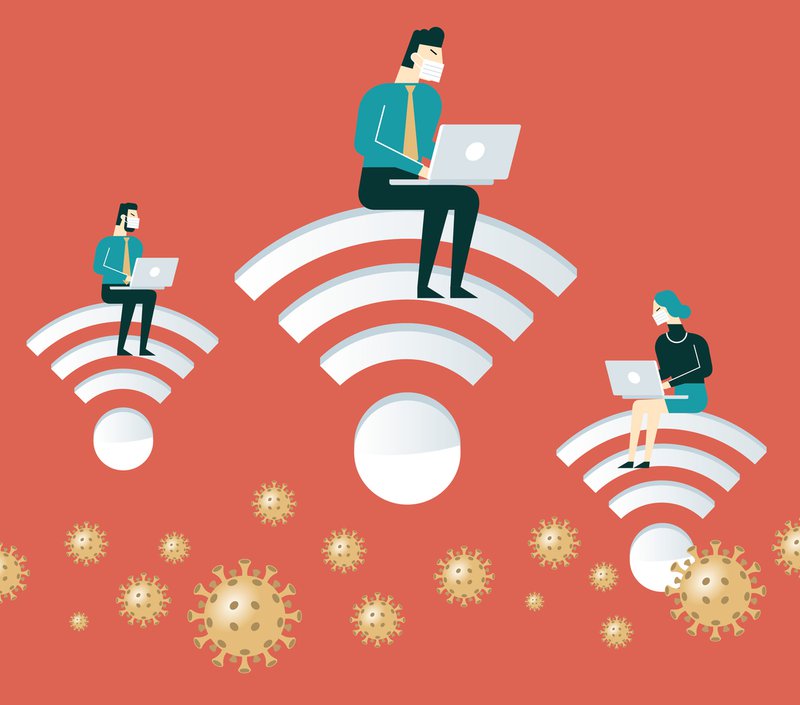
SHRAD RAO
March 24, 2020
These are trying times, and as much as we need to practice social distancing, we also need to pull together to create some sense of connectedness.
In 2012, when I founded my payroll software startup, Wagepoint, I had a gut feeling that building a remote company was the way to go. It’s challenging enough to find employees with payroll knowledge – adding a fixed geography would only make hiring the right people harder. And since our team members could complete their work from anywhere with a reliable internet connection, why wouldn’t we go remote?
It turned out to be one of the best decisions we’ve ever made.
Any concerns around being productive while being remote quickly dissolved, as we’ve grown into a company that processes more than $3-billion in annualized payroll for more than 12,000 customers. And in light of the recent public health concerns around COVID-19, we know that having the ability for your entire company to work from home is invaluable.

But that’s not to say it’s been easy. The challenge with working from home is that people can’t connect like they can in traditional offices or workplaces. Team members simply don’t have organic, spontaneous ways to get together, celebrate wins, and strengthen their culture. When working on a remote team, it can seem like you’re working alone – but you’re not. Physical isolation doesn’t have to mean social isolation.
As a company that’s worked 100-per-cent remotely since day one, we’ve learned some important lessons about staying mentally healthy while getting the job done from home. Our solutions may not work for your company, but if you can take any positive from our experiences, then we’re all better off for it.
- Communication has never been more important. When working face-to-face, good communication is important – when working remotely, it’s mission-critical. Remote teams can’t rely on body language and physical cues, so you have to use all the tools in the communication tool kit to stay connected: Slack, Zoom, Google Hangouts, FB Live, conference calls, group chats, you name it. These tools become your company’s lifeline. Something else that’s worked for us: using e-mails only for follow-ups to document a conversation. This not only keeps the communication as organic as possible, it also cuts down on the assumptions and miscommunications that can result from dreaded FYIs, FWDs, and long e-mail threads. Any way you can help your staff feel involved and connected – especially in spontaneous ways – is a major win for the morale of a remote team.
- Social distance – not social isolation. Working remotely requires much greater attention paid to connecting in social ways. If you’re managing a remote team, that means organizing things like fantasy sports leagues, weekly “beers and cheers” through Hangouts, and traditions where colleagues send each other gifts (the obvious idea being a remote Secret Santa tradition, but get creative with birthdays and company milestones, too!). Just as with people on any team, remote team members need things to look forward to and opportunities to connect in silly, stress-free ways. Building and maintaining personal connections at work – even if work is at home – isn’t a nice-to-have, it’s a must-have.
- Don’t forget the physical. Whether it’s a daily walk, some living room yoga, a weekly push-up challenge, or setting a reminder to get up and walk around every 20 minutes, physical health is a big part of mental health. With remote teams, this is easy to overlook. It’s important to encourage one another to keep moving. We’ve found this is more effective to do as a team – it’s harder to skip your daily activity if your teammate is looking to you for motivation.
- Regular check-ins. Most companies understand the importance of scheduling regular check-ins with team members, but for remote teams, it goes a step further. Equally as important as discussing work-related issues, there’s enormous value in candidly discussing morale, mental health, and social wellness (in both one-on-one and companywide settings). Without these regular check-ins, remote team members can feel isolated and forgotten about. What they need to know is that they’re valued, they’re part of a team, and – this is key – there’s a support system for them to lean on during tough times. Because there will be tough times.
These tips may sound simple, but when practised, they can make a huge difference in the mental health and connectedness of your remote team. The truth is that nothing happens in isolation. Even when your team works apart – whether by design or circumstance – it’s all about finding ways to bring them together.
This Globe and Mail article was legally licensed by AdvisorStream.
© Copyright 2024 The Globe and Mail Inc. All rights reserved.


